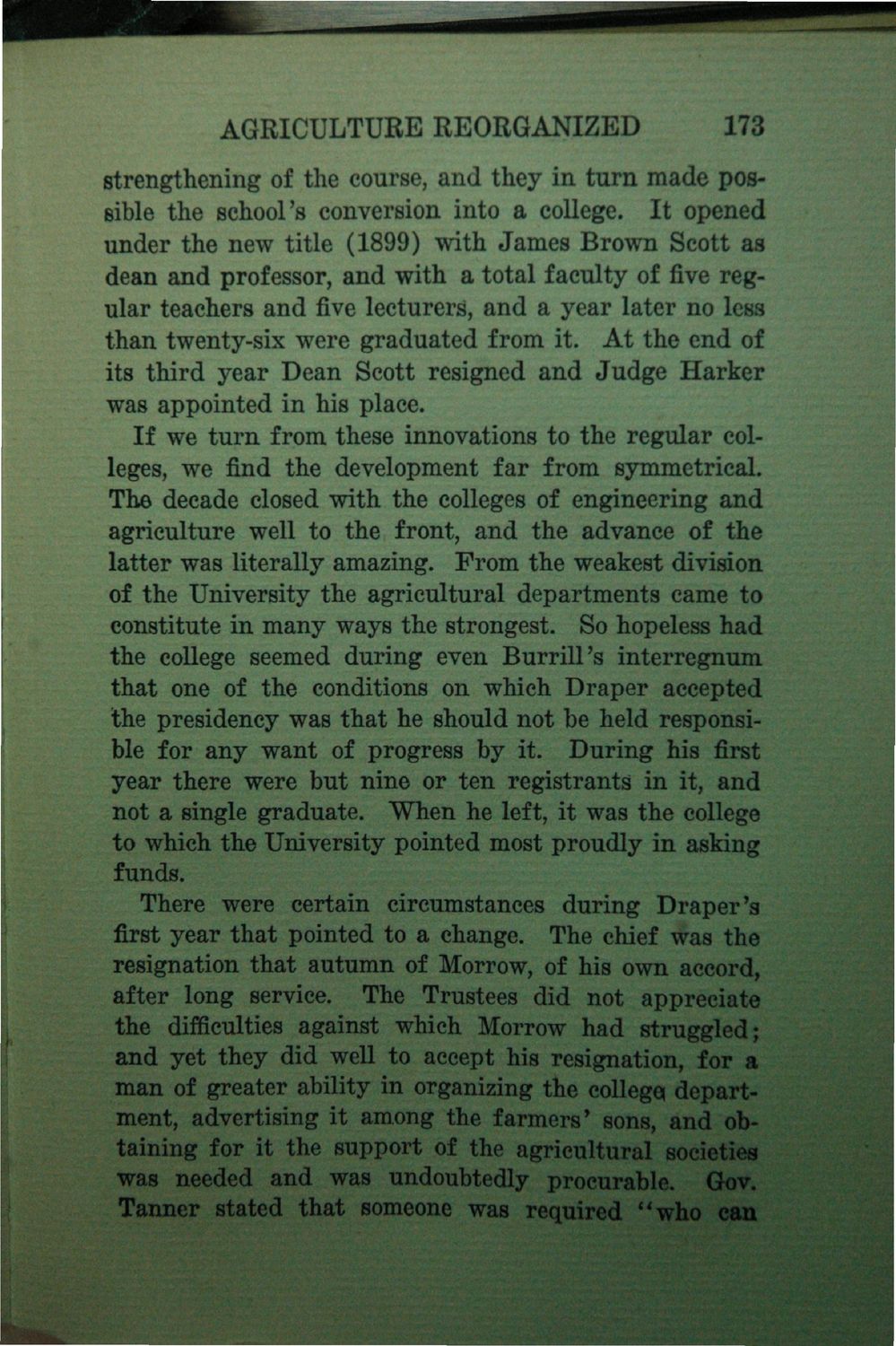| |
| |
Caption: Book - History of the University (Nevins)
This is a reduced-resolution page image for fast online browsing.

EXTRACTED TEXT FROM PAGE:
AGRICULTURE REORGANIZED 173 strengthening of the course, and they in turn made possible the school's conversion into a college. It opened under the new title (1899) with James Brown Scott as dean and professor, and with a total faculty of five regular teachers and five lecturers, and a year later no less than twenty-six were graduated from it. At the end of its third year Dean Scott resigned and Judge Harker was appointed in his place. If we turn from these innovations to the regular colleges, we find the development far from symmetrical. The decade closed with the colleges of engineering and agriculture well to the front, and the advance of the latter was literally amazing. From the weakest division of the University the agricultural departments came to constitute in many ways the strongest. So hopeless had the college seemed during even Burrill's interregnum that one of the conditions on which Draper accepted the presidency was that he should not be held responsible for any want of progress by it. During his first year there were but nine or ten registrants in it, and not a single graduate. When he left, it was the college to which the University pointed most proudly in asking funds. There were certain circumstances during Draper's first year that pointed to a change. The chief was the resignation that autumn of Morrow, of his own accord, after long service. The Trustees did not appreciate the difficulties against which Morrow had struggled; and yet they did well to accept his resignation, for a man of greater ability in organizing the college; department, advertising it among the farmers' sons, and obtaining for it the support of the agricultural societies was needed and was undoubtedly procurable. Gov. Tanner stated that someone was required "who can
| |